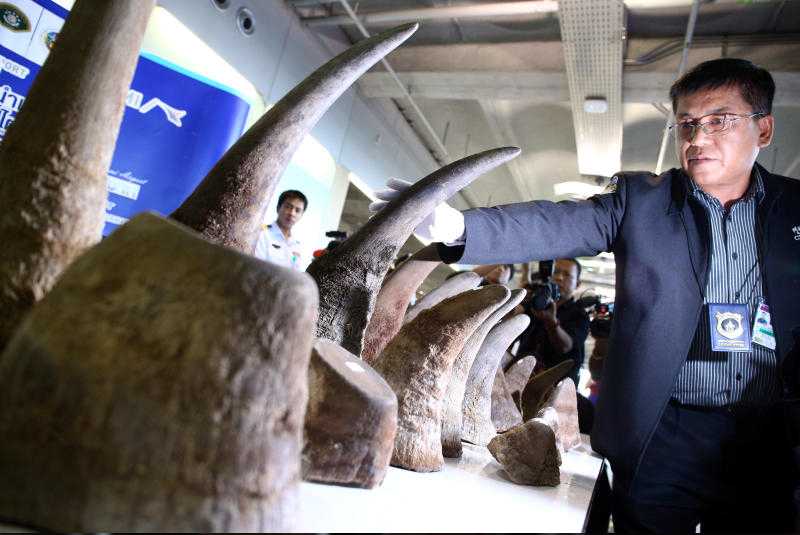×
The Standard e-Paper
Home To Bold Columnists

A Thai customs officer displays seized rhino horn coming from Ethiopia at the Suvarnabhumi International Airport in Bangkok on March 14, 2017. [Photo, Reuters]
Kenya has lauded plans by China to rescind its earlier decision to lift the 25-year ban on trade in tiger and rhino parts.